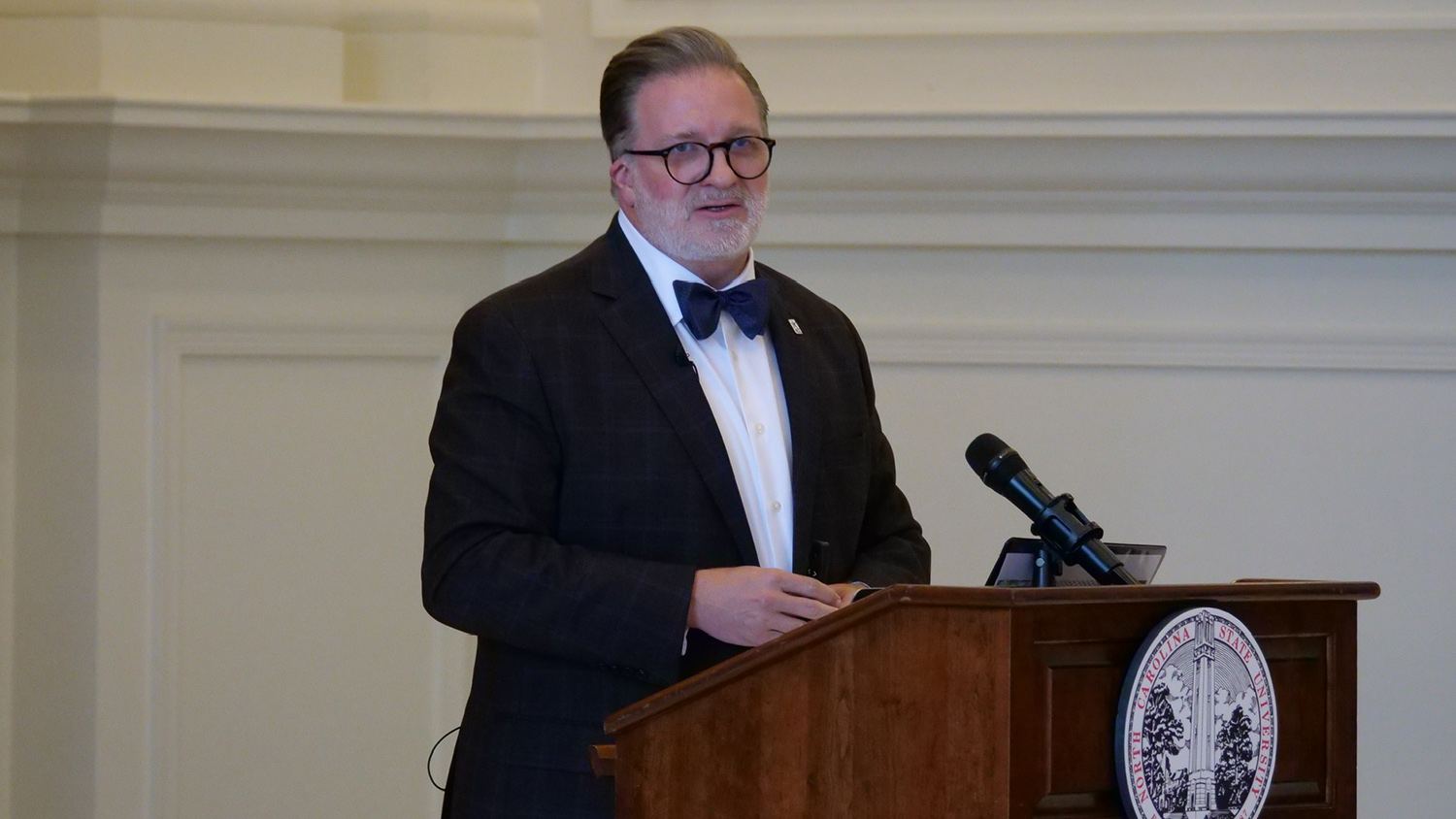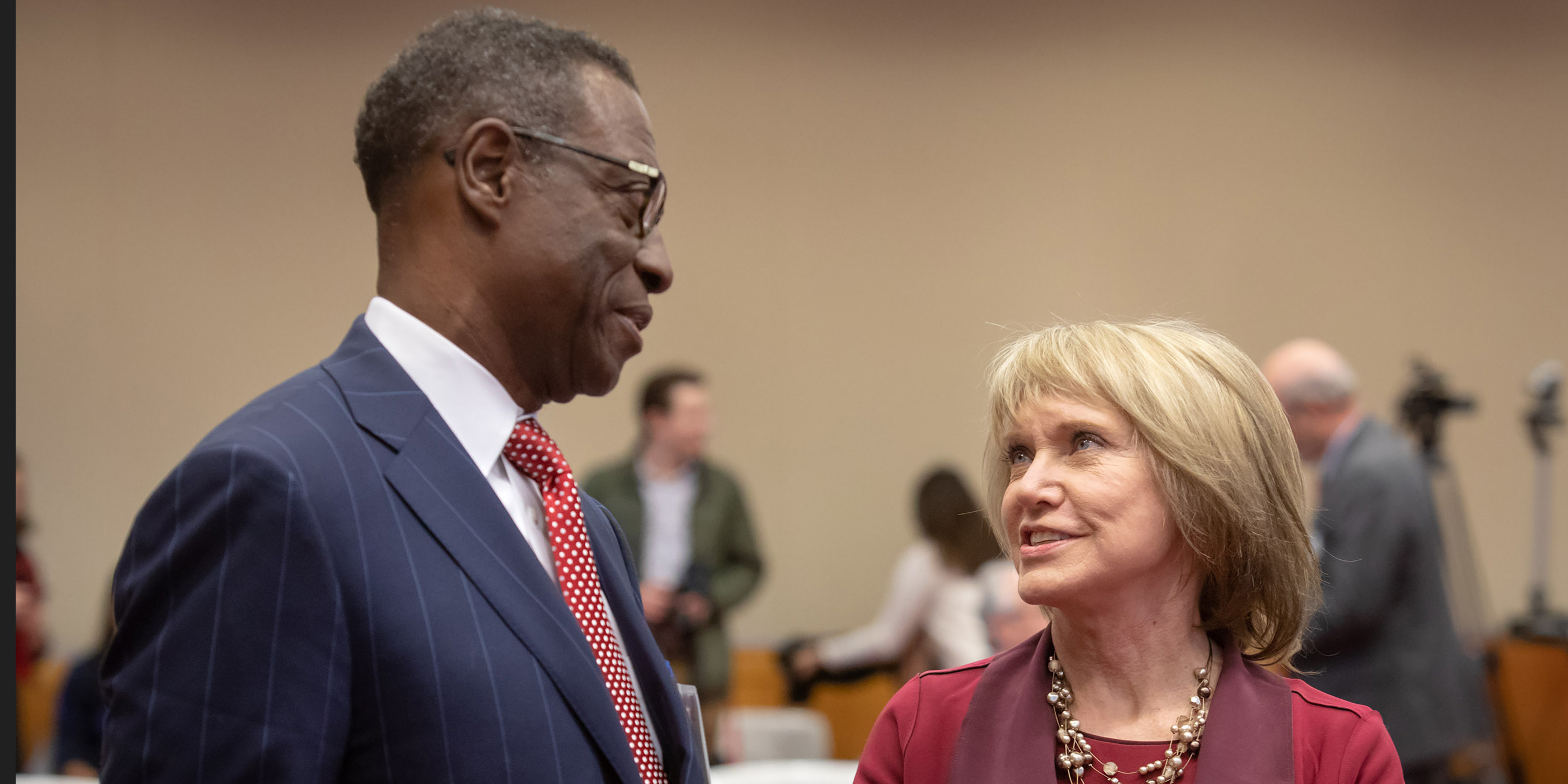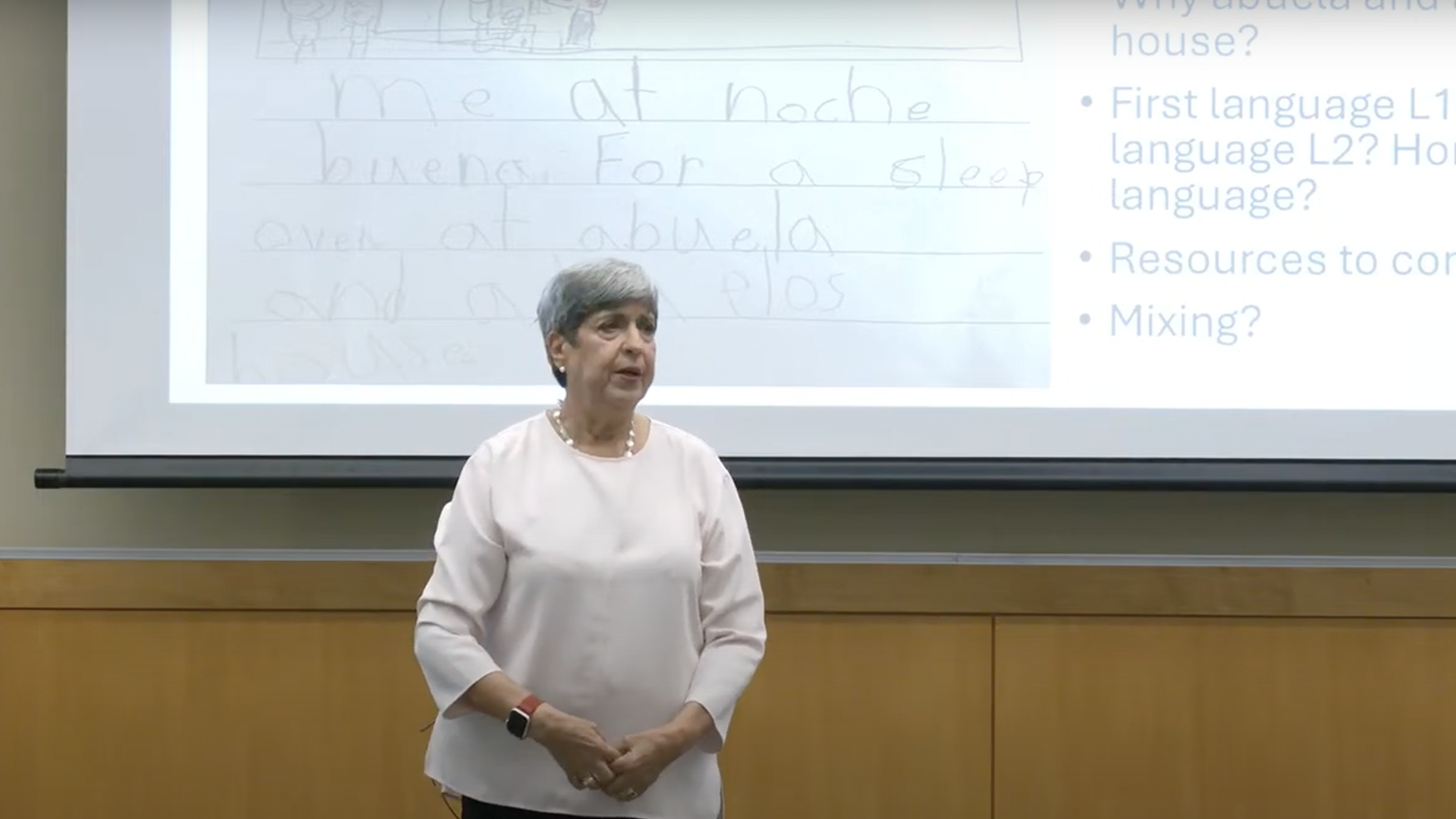Assistant Professors Crystal Chen Lee and Jackie Relyea to Receive Outstanding Engagement Awards

NC State College of Education Assistant Professors Crystal Chen Lee and Jackie Relyea have been selected as winners of the NC State Office of Outreach and Engagement’s 2021 Outstanding Engagement Award.
The annual Outstanding Engagement Award recognizes faculty members who are nominated by their colleagues for their outstanding contribution to engagement efforts. Lee and Relyea will receive their awards during a virtual ceremony on April 14.
In addition, Lee will also be inducted into the Executive Council of the Academy of Outstanding Faculty in Extension and Engagement, which is comprised of select Outstanding Engagement and Outstanding Extension Service Award winners based on the relevance, impact and scholarship of their work.
“Outreach and engagement are a key part of who I am as an educator, a researcher and a community member. I am humbled and honored to be selected for this award and especially to be inducted into the Executive Council of the Academy of Outstanding Faculty in Extension and Engagement,” Lee said. “I am honored to join this group of outstanding faculty and hope to learn from them too. I love working at a land-grant university where outreach and engagement are significant aspects of our work as scholars.”
“I am honored and humbled to be selected for this award, as it recognizes my commitment to community-engaged research and practice to accomplish equity and quality in K-6 literacy education, interdisciplinary collaboration and rigorous intellectual standards,” Relyea said. “I will continue to serve our communities in collaboration with colleagues, students and stakeholders and share our knowledge and resources to address significant needs and make meaningful impacts on our communities.”
Partnering with Community-based Organizations to Amplify Student Voices
For the past three years, Lee’s engagement work has centered largely around the Literacy and Community Initiative (LCI), which she founded with Professor and Friday Institute for Educational Innovation Deputy Director Jose Picart in January 2019.
LCI partners with four community organizations—Bull City YouthBuild, Juntos NC, CORRAL Riding Academy and Refugee Hope Partners—that work with historically and currently underserved youth to examine and empower their voices through student publications, advocacy and leadership. Through its model of “Write, Engage, and Lead,” the Literacy and Community Initiative assesses the needs of youth by developing and facilitating the publication and dissemination of student-authored narratives and sharing students’ experiences with educational and political stakeholders.
Since 2019, the LCI has served more than 60 students through more than 200 hours of direct instruction, and students have published more than 250 writing pieces as well as seven books. An additional three books will be released in April 2022 and will be shared by student authors during the annual LCI Reading Celebration at 6:30 p.m. on May 3 at the Friday Institute.
“We want to amplify the words of students who are often invisible or silenced in formal schooling spaces. We intend to flip this narrative so students can lead other students in inspiring ways,” Lee said. “Our work with students is in-depth and relational building, and we focus on the quality of relationships we develop with our students. Community-based organization work is long-term and we want to continue to develop relationships over the years.”
Lee said preliminary research surrounding the LCI shows student participation in the initiative leads to increased social-emotional growth related to self-determination, self-compassion and self-efficacy.
As a result of the Literacy and Community Initiative’s unique framework and impact on historically underrepresented communities, Lee and Picart have also been invited by Routledge Publishing to co-author a book on the impacts of integrating critical literacy and youth development. The book is expected to be released in August 2023, Lee said.
Improving Literacy During a Pandemic
When the College of Education’s Wolfpack Readers literacy tutoring program, initially developed by Associate Professor Dennis Davis, was impacted by the onset of the COVID-19 pandemic, Reylea led the development of the online, after-school iWolfpack Readers literacy tutoring program and launched it for elementary school students in a Title I school in Wake County, North Carolina.
The goal was to provide a continuous learning experience for young children during school closures. In addition, the project aimed to ensure comprehensive and rigorous professional development for NC State graduate students, who serve as tutors for the program, through a robust, supervised teaching practicum experience in evidence-based literacy instruction; and to establish a sustainable research-practice partnership with practitioners, school administrators and parents with a common goal of improving literacy outcomes and engagement.
“Although many teacher education programs encountered obstacles during the COVID-19 pandemic, I have adopted curricular and instructional innovations, with the goal of continuity of the teaching practicum during school closures and reconceptualizing reading teacher education that can provide student-teachers with authentic community-based teaching and learning experiences through the iWolfpack Readers tutoring program,” Relyea said. “The development of the iWolfpack Readers program is to support tutors to improve their theoretical and practical knowledge in literacy education and their ability to translate the knowledge base into practice in real instructional settings.”
The iWoldpack Readers curriculum is designed to promote elementary-grade students’ increased exposure to complex informational texts and to support the development of content knowledge in science and social studies that students could leverage for higher-order text comprehension. Relyea is using a similar model as part of her grant-funded work with Davis on a reading intervention for English language learners with reading comprehension difficulties.
Relyea has also been engaged in multi-university collaborative partnerships with Harvard University, MIT and Florida State University as part of the Reach Every Reader K-3 literacy initiative, which is funded by $30 million from the Chan Zuckerberg Initiative. In developing the instructional components of the intervention program, Relyea’s team has collaborated with teachers, literacy facilitators, principals, school administrators and parents in the Charlotte-Mecklenburg Schools district in North Carolina. Her research on community-based literacy interventions have widely been disseminated in journals including the Journal of Educational Psychology, Educational Psychology Review, Action in Teacher Education, and Journal of Educational Research.


